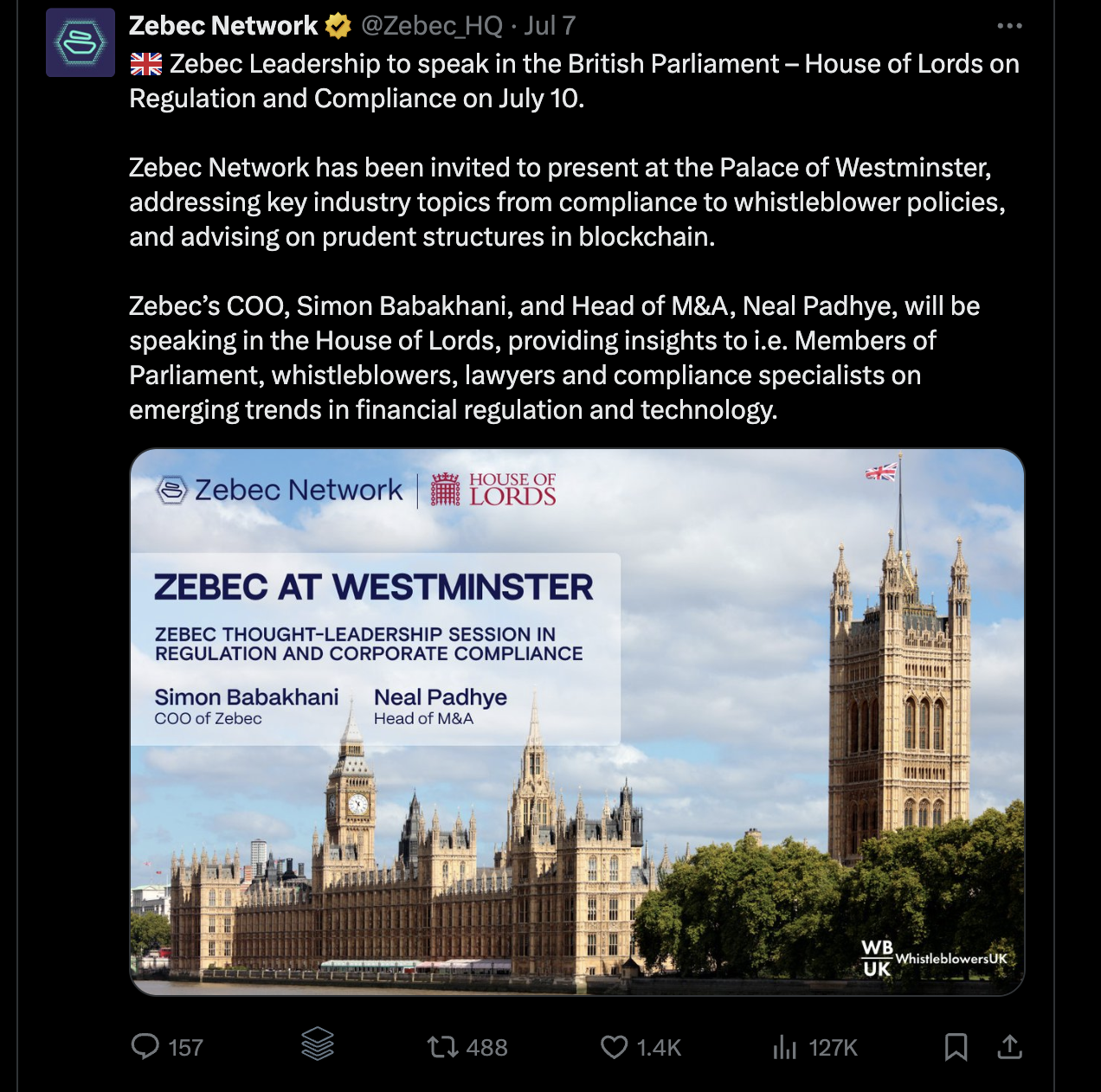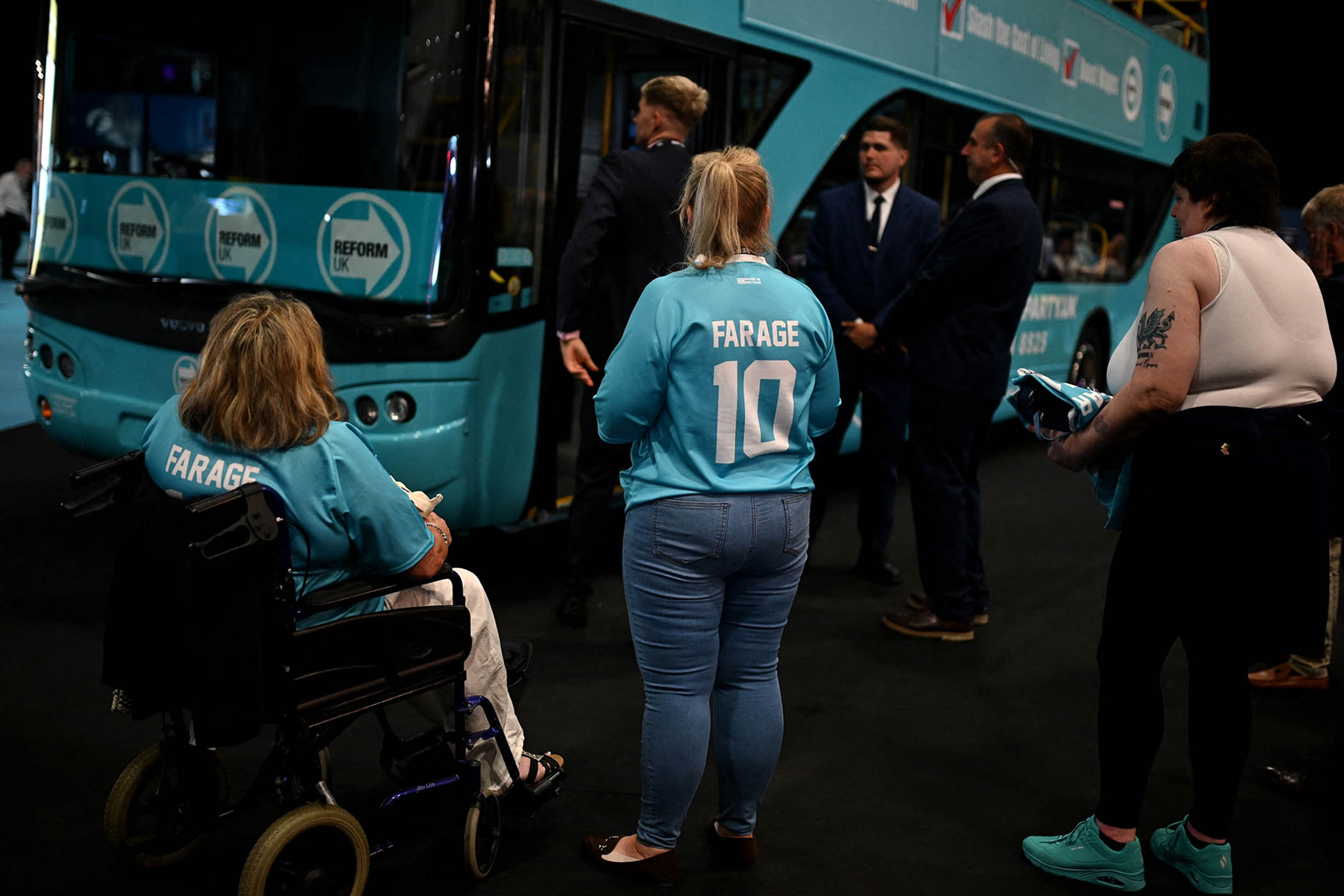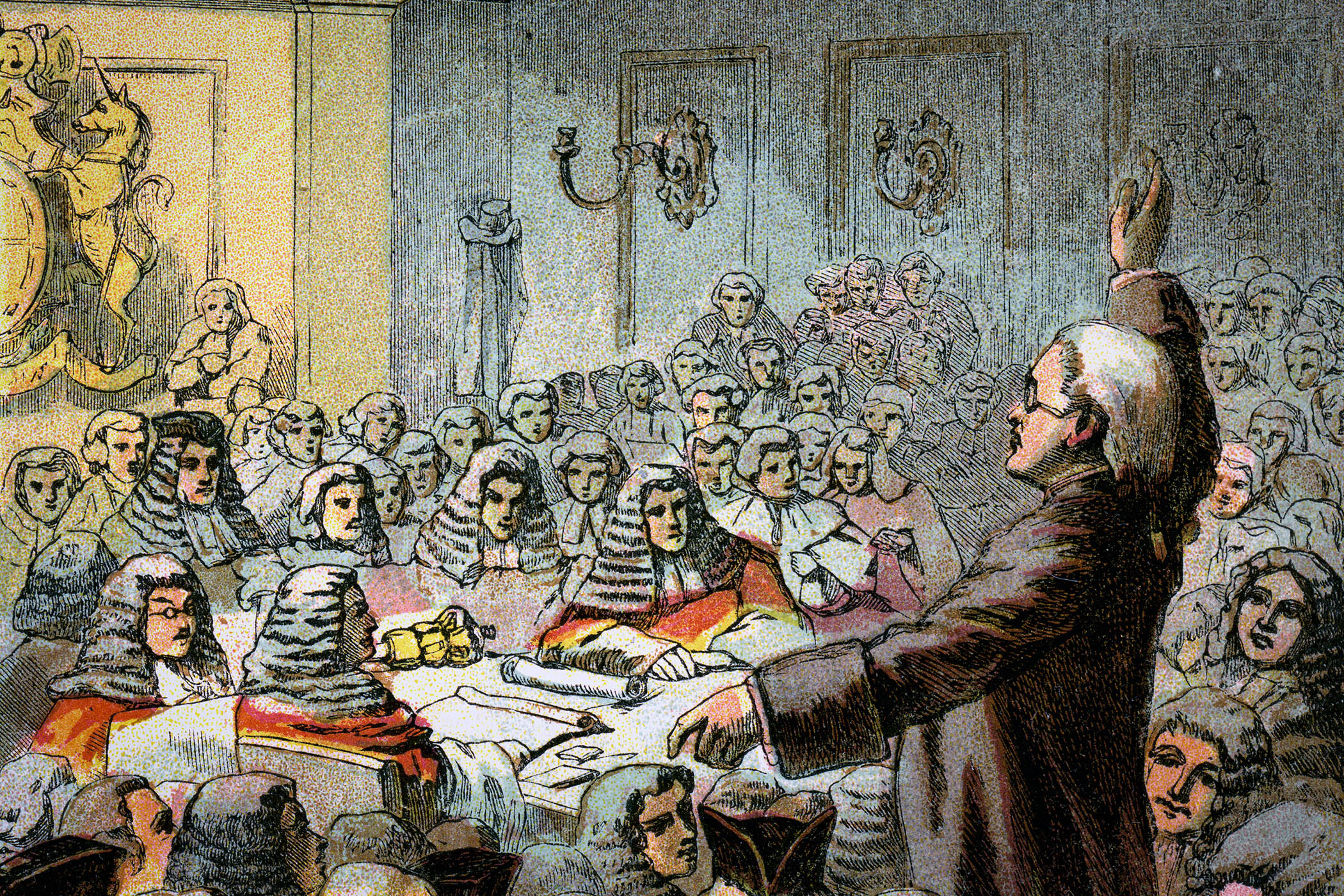The party that leads in opinion polls even though it has only five MPs hoped for “hundreds” of businesses at its meeting in Birmingham. That proved optimistic, but among those which did turn up was Zebec, a crypto platform ultimately controlled by an entity registered in the British Virgin Islands, according to filings at Companies House.
This appears to be in breach of company law, which states that limited companies must disclose their ultimate owners.
A second sponsor, Japan Tobacco International (JTI), has been called an “international sponsor of war” by Ukraine’s state-run National Agency on Corruption Prevention (NACP). JTI describes itself as “the tobacco market leader in sales volume in Russia”, where it employs thousands of people in four factories and contributes hundreds of millions of dollars in tax revenue.
Zebec sponsored a fringe debate at the conference on what the first 100 days of a Reform-led government would look like, while JTI co-sponsored a talk entitled “Revitalising the Great British high street – how to reverse decades of decline”.
Information held by Companies House is supposed to enable the public to see who controls UK businesses and who their main shareholders are. Yet in the case of Zebec the filing only names “a secretive shell company,” Steve Goodrich of Transparency International said.
“There are only narrow exemptions to these rules, and I cannot see how they apply here. Crypto is the wild west of finance right now, so it’s particularly important for consumers to understand who’s behind firms offering products in this space.”
A spokesperson for Zebec told The Observer: “We believe our structure to be compliant.”
The company has promoted its links to parliamentarians generally. In July it tweeted that its chief executive, Simon Babakhani, and another director were “speaking in the House of Lords, providing insights to ie Members of Parliament, whistleblowers, lawyers and compliance specialists on emerging trends in financial regulation and technology”.

The post, which has been viewed nearly 130,000 times, included logos of the House of Lords, in breach of rules barring the use of parliamentary logos at external events. On one crypto news site, the announcement was credited with having boosted the company’s share price by 20%.
In one of his conference speeches Nigel Farage, the Reform leader, promised to back crypto should he become the next prime minister. He said his party would make London “a centre for digital assets and cryptocurrencies,” creating thousands of jobs.
Newsletters
Choose the newsletters you want to receive
View more
For information about how The Observer protects your data, read our Privacy Policy
JTI was represented at the conference by its UK head of public affairs, who spoke alongside the Reform MP Sarah Pochin. In 2022 the company said it would “suspend all new investments and marketing activities” in Russia, but a year later it was added to the NACP’s list for continuing to do business there. The listing said it held nearly 35% of market share, directly supporting the Russian economy.
The list was discontinued last year when local media reported that the Kyiv government had “faced strong pressure and even blackmail in response from certain western partners, on whose voice and assistance Ukraine directly depends”.
A JTI spokesperson told The Observer that the group operates in Russia “in full compliance with all applicable regulations, including but not limited to economic sanctions and export controls”.
Reform has frequently been criticised for its position on Russia and Ukraine. Richard Tice, the party’s deputy leader, recently suggested Ukraine should not be admitted to Nato if it was a red line for President Putin, arguing instead that Kyiv should accept an “uncomfortable compromise” in return for peace.
Farage has previously argued that the EU and Nato “provoked” Russia’s invasion of Ukraine with eastward expansion, leading to accusations that he was echoing Kremlin excuses for the invasion.
In 2014, the Reform leader also suggested that Putin was the world leader he admired the most, although he has since attempted to qualify his statements.
In the days leading up to Reform’s conference, Farage was called a “Putin-loving free speech impostor” by US Democrat Jamie Raskin, as he appeared before a congressional hearing on censorship.
Reform did not respond to requests for comment.
Photograph by Oli Scarff/AFP
Related articles:



